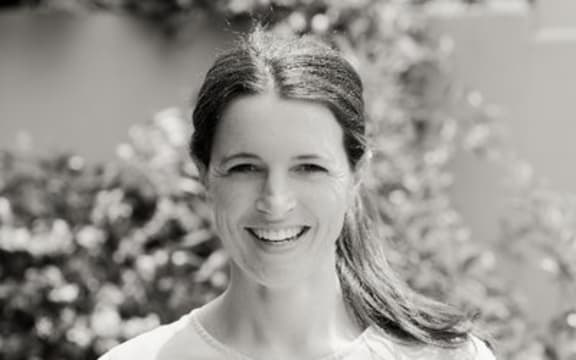
Data from the New Zealand Health Survey found 93 percent of us eat red meat. Photo: 123rf.com
There are very few true vegetarians in New Zealand, despite the rise in palatable plant-based offerings and trends towards environmentally friendly food, new figures show.
And vegans are about as rare as a steak before it hits the grill.
According to new analysis of data from the New Zealand Health Survey:
- 93 percent of us eat red meat
- 2.89 percent do not eat red meat, but do eat seafood and poultry
- 1.4 percent are pescatarians (no red meat or poultry, but do eat fish)
- 2.04 percent are true vegetarians (no meat or seafood at all).
Only 0.74 percent are true vegans (no meat, seafood or animal-derived products such as dairy)
The low rate of vegetarianism and veganism surprised Kathryn Bradbury of the University of Auckland's School of Population Health, who co-authored the new study, published 5 December in the journal Public Health Nutrition.
"I did think it was going to be low," she told RNZ. "If you look at other countries that are sort of similar to us, it's usually less than 5 percent, so I was thinking somewhere under that it would probably be."
Past surveys have suggested up to 10 percent of Kiwis call themselves vegetarian, but Bradbury said that would include people that did not each much meat, but would not have been counted as vegetarian under the stricter definitions found in the New Zealand Health Survey.
"You really can't ask people how they identify… I've had people tell me, when they find out what I'm interested in and what I research… they say, 'Oh, yeah, I'm vegetarian.' And I said, 'Isn't that bacon you're eating in your sandwich?' They said, 'Oh, yeah. I mean, I eat bacon but, you know.'
"So asking them whether they're vegetarian just doesn't really work - you need to ask them what foods they're eating or they're not eating."
To count as vegetarian in the New Zealand Health Survey, which included responses from more than 23,000 adults, participants had to completely exclude all forms of meat - red, poultry, fish, et cetera - with no exceptions.
"They had to say yes to all of those to be able to be classified as vegetarian for our study - so that's why we got such a low prevalence, because it was a very strict definition…
"Other previous market research polls that had estimated quite a high percentage, that's because their questions were quite different. They are things like, how often do you usually, always, or mostly eat vegetarian food when you have the opportunity? So, there's a lot more leeway there to say, 'Oh, yes, I normally do, you know, when I can.' … Whereas we didn't ask people, did they call themselves a vegetarian - we just asked, did they exclude these foods from their diet?"
While Bradbury suspected Kiwis had cut down on their red meat consumption - as recommended by nutritionists - there was a real lack of data to prove it. As this latest study found, what people say they are doing - such as in this 2019 survey on cutting back red meat consumption - can conflict with what they are actually doing.
"We don't know how much we're eating. We just know that there's very few people that are eating, you know, none at all. Just under 1 percent were vegan, which means that they didn't eat red meat, chicken, fish, seafood, milk cheese or other dairy products or eggs. So they didn't eat any of that.
"But the New Zealand dietary guidelines recommend a mostly plant-based diet, but with moderate amounts of meat and other animal food. So we weren't able to see whether people were meeting those recommendations."
The last nationwide survey of what we were eating was carried out in 2008/9, and published in 2011. It found "a decline in the contribution of saturated fat to total energy intake, a decrease in total blood cholesterol, and an increase in eating the recommended two or more servings of fruit per day", but also " an increase in the prevalence of obesity, and an increase in the prevalence of low food security".
That survey, which involved more than 4000 people, found 94.5 percent had eaten red meat in the past four weeks, and almost as many had had chicken. It did not contain any figures on how many Kiwis were meat-free.
The most recent nutrition survey focused on children was even longer ago - 2002, according to Bradbury. WIthout this information, she said it made developing effective health policy more difficult.

Kathryn Bradbury. Photo: Supplied
"It was a really long time ago, so we urgently need another national nutrition survey that would actually tell us with great detail what people are eating, and we'd be able to see, are we meeting our New Zealand guidelines and where we might be falling short of meeting the guidelines…
"We just don't really have up-to-date information on what our population is eating, and [that] it makes it difficult to say what kind of interventions or initiatives or programs or policies we need to try and improve our health and try to improve our diets because we don't really know exactly what they are."
In some other countries, including the UK and US, Bradbury said this was done every year - and it covered more than just meat and vegetables.
"We don't know how many soft drinks or fizzy drinks we're eating. So, if we want to think, 'Oh, should we do a sugar, you know, fizzy drink tax?' Well, we don't really know how much we're drinking, whether that would be effective… it's just hard to design policies really when you just don't have good information on what we're really eating and drinking…
"Government should be doing it. Obviously, you know, it's a bit of a cost upfront to do it, but it's more of a cost because it hasn't been done for so long. So if you actually set it up in a rolling manner,, you don't lose expertise in between times, you know, because it's been so long now since we've done the last one. Resurrecting it again is quite a task."
RNZ approached the Ministry of Health to ask if there were plans for another nutrition survey in the future. It said there were "currently no plans to undertake a nutrition survey for adults or for children".
"Given the breadth of health-related information needs, the Ministry of Health will work with the minister of health to understand his priorities, and the priorities of the Government. Options for investment to meet these information needs sustainably – including nutrition-related information – can then be developed.
"A broad set of health information needs are currently being met through the New Zealand Health Survey and its modules. However, topics like nutrition require specific and targeted surveys that reflect their complex nature."
Its most recent data, also from the New Zealand Health Survey, found:
- Half of adults met the fruit intake recommendation (two-plus servings per day)
- 10.4 percent of adults met the vegetable intake recommendation (five to 5.5 servings)
- 73.9 percent of children met the fruit intake recommendation (one to two servings)
- 6.4 percent of children met the vegetable intake recommendation (2.5 to 5.5 servings)
Other findings
The study also found vegans and vegetarians were more likely to be younger than eaters of red meat, thinner and have lower blood pressure.
Pasifika were more likely to avoid red meat than NZ Europeans (Pasifika: 7.26 percent for men, and 8.15 percent for women; NZ European 1.37 percent for men and 4 percent for women).
Asian people (6.42 percent for men and 8.53 percent for women) were far more likely to be vegan/vegetarian than NZ Europeans (1.67 percent for men and 2.82 percent for women).
People with a tertiary qualification were more likely to be vegan, vegetarian or exclude red meat from their diet than those without.

